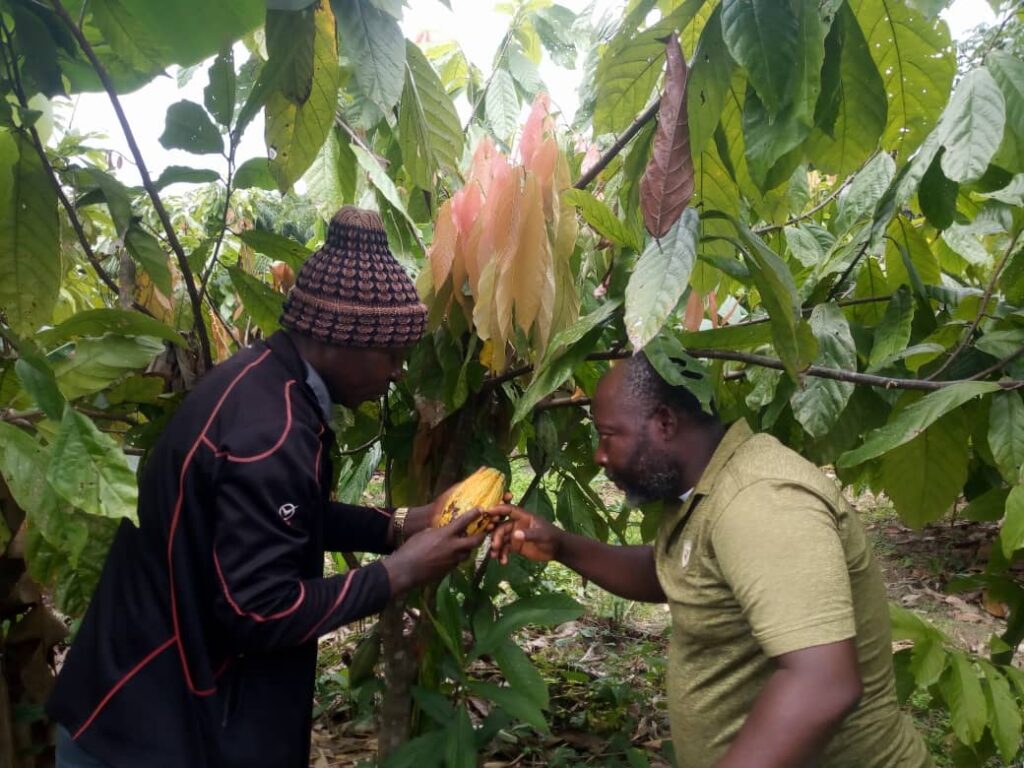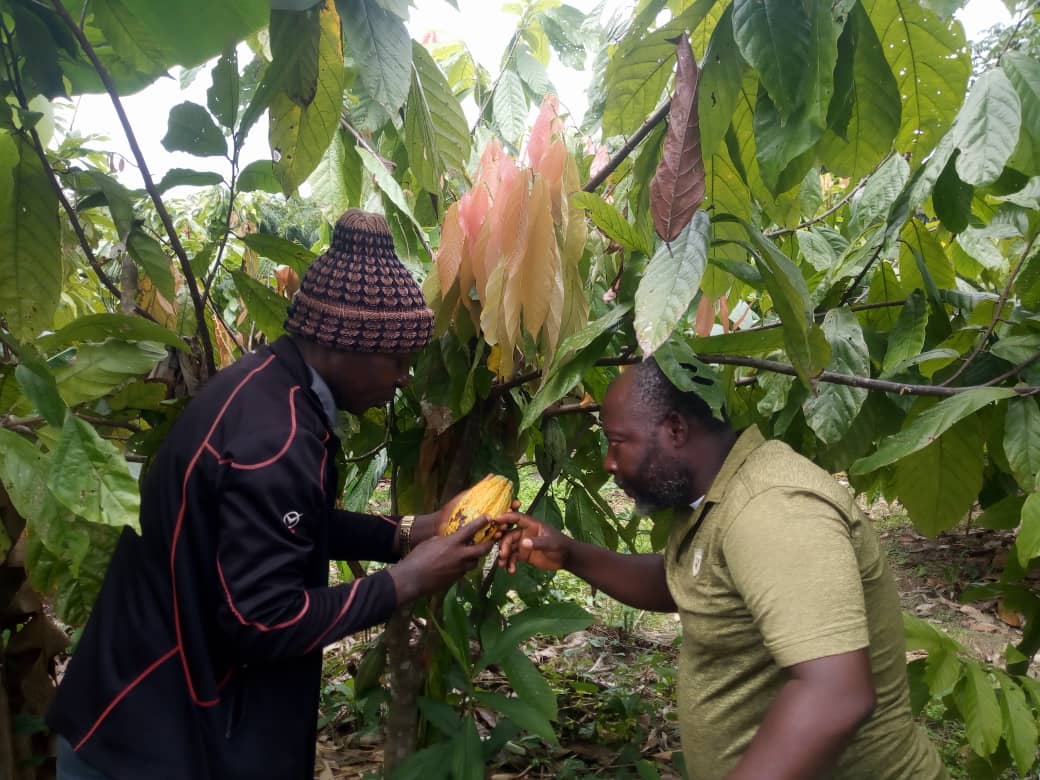Bayelsa born mechanized Herdsman narrates how ‘enemies’ poisoned, killed his 400 cows in 3 days, Calls for Govt’s intervention
A Bayelsa born hotelier turned mechanized farmer, Chief Joshua Orugi, has narrated his worst experience in his over two decades of foray into mechanized farming.
Orugi, who hails from Nembe Local Government Area of the state, on Wednesday, took a group of selected journalists to his twenty-five hectares of farm land located at Imbetuma Island owned by Owe Family in Nembe Ogbolomabiri which he uses for mechanized mixed farming comprising cocoa and cashew plantations, cattle rearing, poultry and fisheries.

He recalled that he was into hotel business but was moved to venture into commercial farming in 1996 because he realized that Bayelsa is blessed with arable environment that had been underutilized over the years, pointing out that the major reason he went farming was to curb Bayelsa’s total dependency on importation of food stuff from neighbouring states.
Conducting the media practitioners round the large farm, Orugi relived his 2012 worst experience in his farming business where he lost 400 cows to unknown enemies who allegedly poisoned the water pit he dug for his cattle to drink from.
Pointing to the burrowed pit, the Orugi said “that is the pit where my cows used to drink from. But in 2012, an enemy came and poisoned the water and my 400 cows died in a period of three days out of 600 cattle that I had. That was how I lost the courage to continue with cattle rearing following the huge loss that almost took my life.
‘’Because of the fear of possible repeat of what happened to my cows, I also decided to stop my poultry business which used to produce a hundred crates of eggs per day. Consequently, I decided to go into plantation of Cocoa and cashew in year 2016 with 60,000 cashews and 60,000 cocoa stands and we have started harvesting already.’’
He also conducted the journalists round his fish ponds where he nurtures the popular catfish, tilapia and the one referred to in Ijaw language as Abah which means ‘Governor’s Fish.’’
According to the commercial farmer, he has stocks of 70,000, 60,000 and other 60,000 catfish fingerlings respectively in his three ponds.
Orugi hinted that the farm, which goes by the name ‘’God is my Life; Sea Never Dries Group of Farms, has about forty workers on her payroll.
He, however highlighted some of his challenges to include paucity of funds to properly maintain both the aquatic lives as well as the arable crops, revealing that he had sunk over N2 billion into the farm since its inception without any financial grants or loans from the state, federal government, the Bank of Industries or any international agency.
The Chairman of Chief Joshua Robert Orugi and Sons Enterprises further lamented that his application to the Bayelsa state Ministry of Agriculture and Natural Resources for a loan facility from the Central Bank agric funds never saw the light of the day, alleging that funds meant for farmers were not being channelled to the appropriate quarters.
He therefore called on the state and federal governments and the international donor agencies to come to his financial aid, adding that if properly harnessed through partnerships with the mentioned bodies, the farm has the capacity of becoming the food basket of Bayelsa state and beyond as well as create many job opportunities for the unemployed youths.
The Azagbene and Nembe born farmer also called on more Bayelsans to venture into commercial farming in order to tackle the menace of food security bedevilling the nation and the state.
Another challenge faced by the farm, according to him, is the issue of intruders coming to steal his crops and fishes, noting that some thieves take advantage of the large nature of the farm to steal cocoa and cashew nuts unnoticed while others come with impunity and threats to the workers on ground and do away with the fruits and nuts, calling on the state government to provide adequate security for his workers and the farm.
He also revealed that plans were on to resume his poultry business, noting that parts of an abandoned market square in Nembe Ogbolomabiri had been given to him by the community to be used for hatcheries as well as warehouse for fish feeds.


